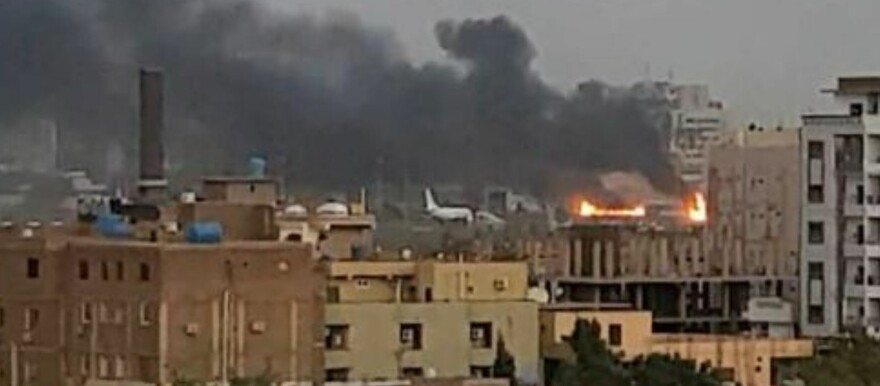The UN’s Humanitarian Coordinator in Sudan, Clementine Nkweta-Salami, has expressed deep alarm and shock at the news of an attack on an International Committee of the Red Cross (ICRC) convoy in Khartoum on 10 December.
She said she was dismayed by the attack on humanitarians which left two dead and several people injured.
“I am horrified by this reckless attack on an ICRC convoy, which tragically claimed the lives of two people and injured seven more, including three from ICRC,” Salami said. “The convoy was clearly marked with the Red Cross emblem – a universal symbol for neutrality and protection. My thoughts are with the families and colleagues affected.”
The humanitarian convoy, including three ICRC vehicles and three buses, was due to evacuate over a hundred vulnerable civilians from Khartoum to Wad Madani when it came under attack upon entering the evacuation area.
“I have consistently urged the Sudanese Armed Forces, the Rapid Support Forces, and all parties to Sudan’s conflict to respect the principles of international humanitarian law and ensure the safety of civilians and medical personnel, to immediately halt attacks on civilian infrastructure and medical facilities and to allow unrestricted humanitarian access to provide critical aid and medical assistance to affected populations,” the Humanitarian Coordinator emphasized. “Civilians, humanitarian aid workers, and medical personnel are #NotATarget. It is incumbent upon the parties engaged in conflict to ensure the safe evacuation of civilians from areas of active combat. This entails an obligation to provide and facilitate unimpeded passage for those seeking to leave conflict zones.”
Since fighting broke out on 15 April, over 12,000 people have been killed, according to the Armed Conflict Location & Event Data Project (ACLED). Of those, at least 20 aid workers have been killed and 36 injured. Since 15 April, the World Health Organization has verified 60 attacks on the health care system resulting in 34 deaths and 38 injuries.
“The conflict in Sudan continues to inflict harm on civilians. The situation is catastrophic. The suffering of the Sudanese needs to come to an end once and for all,” Salami concluded. “I call on the parties, yet again, to pursue the path of peace for the sake of the future of the country.”




